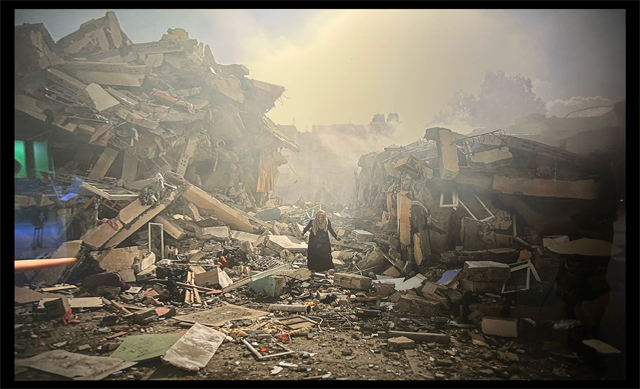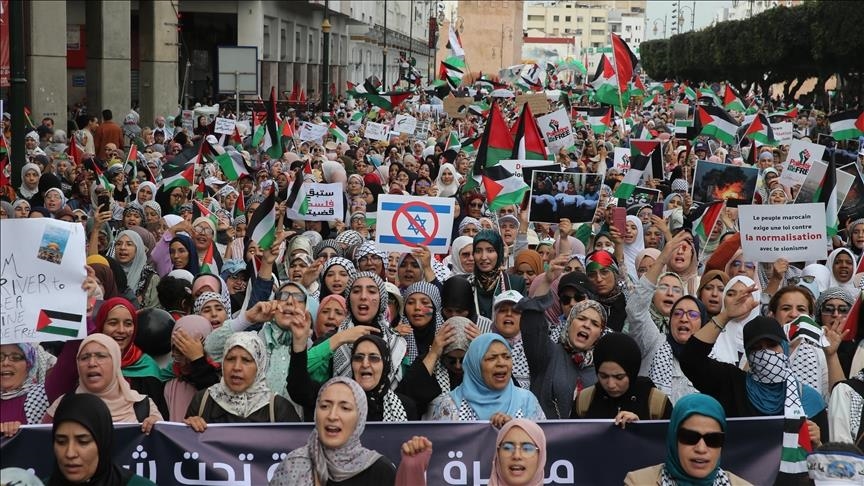Israel is Burning: Here’s Why!
By Dr Marwan Asmar
(Crossfirearabia.com) – Israel is burning. Its war on Gaza is going nowhere, Israeli society is being torn-apart, and its remaining 59 hostages remain in the depth of the tunnels in Gaza unable to be found. Its like looking for a needle in a haystack because of the extensive hundreds of miles of underground! Many, except Israeli Prime Minister Benjamin Netanyahu, people like US Envoy Steve Witkoff believe the hostages, 24 still alive, are likely to die if the war is not brought to an end.
After 18 months of bloodshed on the Gaza Strip with its endless destruction, Israel is nowhere near to reaching its objectivity of stamping out Hamas. The Islamist organizations remains just as strong, determined and willing for martyrdom as when the fighters unleashed themselves soon after 7 October, 2023.
On the contrary all the Israeli government did by insisting on the continuation of the war on the Palestinian territory has created the wrath of many world nations, including the irritation of US president Donald Trump who has cut off contacts with Israeli Prime Minister Benjamin Netanyahu and who now feels the latter can no longer be trusted for a meaningful end to the fighting.
Meanwhile, the Israeli army which is back fighting on Gaza not of its own accord, is facing what can all be called the “Gaza malaise” of being entrapped in the Strip through ambushes, booby-trapped, once-standing houses and Palestinian resistance missiles, ammunitions and artillery.
Israel and its army – despite the killing of over 52,000 Palestinians, 100,000 injured with over 12000 remaining under the rubble – is facing the worst of times, bogged down, through its own accord in an enclave it is determined not to leave while shamelessly embarking on a spree of killing, murder and mass-bombing civilians under the intrepid eyes of the world and documented by international agencies. In fact, many experts, including Israelis, say this is the worst documented genocide which the Jewish state will not be able to live it down.
Meanwhile, the Palestinian resistance lead by Hamas and Islamic Jihad fighters and a motley of other determined factions led by the Popular Front for the Liberation of Palestine are wreaking havoc among Israeli soldiers and their killer machines of tanks, all over the Gaza Strip from its far north, center and its south.
Privately the Israeli army is complaining because of the orders they are following from extremist politicians like Netanyahu. And they have a right to be because they have literally bombarded every nook and cranny in Gaza, forcing its 2.1 million populations on a whirlwind pool of displacements not once, not twice but up to 10 times to squat from one place to another but to no avail.
How can civilians, mostly women and children living in tents – for this is what Gaza has been reduced to – be military targets with mass bombs dropped on schools and hospital. For this is what the Israeli army is, an impressive air force, thousands of tanks and mass bombs supplied by the Americans, British and many more countries have been reduced to.
There are no Palestinians fighters here, they don’t lounge among civilians in makeshift UN schools. The fighters are in bombed houses, Israeli-gorged out what used to be manicured-gardens and residential squares, in semblance of buildings that used to be ministries, ruined university halls, restaurants, shops and libraries and much more.
Israel has made sure these longer exist. However, the Palestinian groups have came to fight among the rubble of these places that are bombed and re-bombed time and again like a macabre scene never existed before.
In many of these places, different neighborhoods of Rafah in the south of the Gaza Strip to the north the bombed-out town of Beit Hanoon to Al Tuffah in Gaza City and Shuja’iyya to the east, near the wall that divided Gaza from Israel, the rubble and wreckage has become so bad that Israelis, for the most part, are no longer able to enter their tanks, bulldozers and other heavy machinery.
The soldiers have to go on foot with their machine-guns and backpack of bombs and other “vile little goodies”. Frequently, and today, much more so, they would be running from one place to another fearful of being sniped by Palestinian fighters.
Since Israel re-started its war on the Gaza Strip after 19 March, and as the Palestinian fighters geared for action weeks later, ambushes of Israeli soldiers were stepped in in the different areas of Gaza. These ambushes resulted in the death and injury – on a daily basis of many Israeli soldiers.
While the Israeli army – and it has been so throughout this war – trying to massage and downplay the number of Israeli dead, this has not worked because of the Israeli media, the internet and power of satellite television which meant that the image and the picture – even by Israeli soldiers themselves – has been instant and at the ready ready to be posted online.
As to the intensity of the fighting when satellite television provide pictures of helicopters, both like a scene of the ambush, the booby-trapped house and landing on top of Israeli hospitals, in Tel Aviv for instance, experts said one can be sure the number of Israeli dead and injured is large because Israeli soldiers on the ground on Gaza have with them medical teams to deal with immediate emergencies.
If helicopters to be transported to hospitals are brought in, they argue the number of ‘critically’ wounded and dead is sure to be much higher and that means the resistance is meting out powerful blows at the Israeli soldiers thousands who have been protesting in this latest military campaign that they don’t want to go back to fighting in Gaza in a recent memo signed by 200,000 rank-and-file soldiers and some even prepared to go to prison for disobeying orders.
The dismay among the Israeli soldiers have been highlighted by the booby-trapped housing. In one case recent case in Al Jenienah neighborhood in Rafah, a group of Israeli soldiers with their dogs walked into what appeared to be a booby-trapped disused building and which exploded immediately bringing in the transport helicopters. The place just blew up.
Such a situation is being repeated daily on the streets of Gaza, a strip proving a tough fight that can’t be conquered nor subdued. Just to go back to Shuja’iyya, a wrecked place which the Israeli army entered many times, and which history will associate with Palestinian courage, as its name in Arabic, as of Saturday morning a military transport vehicle was just blown up.
All the Israeli army first said that there has been a serious security incident there, with helicopters hovering at the scene on top of Tel Hashomer Hospital in Tel Aviv. Later on the only owned up to two soldiers being killed and seven injured.
Brigadier-general Fayez Dwairi speaking on Al Jazeera says that the number of Israeli dead is likely to be between four and 12 depending whether we are talking about a Merkava tank and or a military vehicle that also carries 12 people. He points out the Israeli tanks is the only one in the world that has four operatives but has room for six additional soldiers.
Hence this is the battle Israel is currently waging. If Netanyahu insists that the war will continue then his army is likely to continue to face a vicious circle of death and mayhem as the Palestinian Israeli fighters will continue to mushroom.
Today the Palestinian resistance is still at the ready for with Gaza destroyed and mass wreckages that wrecks of death, they have nothing to look forward but to continue fighting especially against an Israeli government and army determined to fight Hamas and the other Palestinian factions till the end
This analysis is written by Dr Marwan Asmar, chief editor of the crossfirearabia.com website.


 . This is what they're reporting meanwhile we're seeing video footage of eliminated Israeli soldiers being wheeled out of Rafah daily. Stop lying…. you're completely losing the ground battle & Trump is now begging for a ceasefire.
. This is what they're reporting meanwhile we're seeing video footage of eliminated Israeli soldiers being wheeled out of Rafah daily. Stop lying…. you're completely losing the ground battle & Trump is now begging for a ceasefire. 






